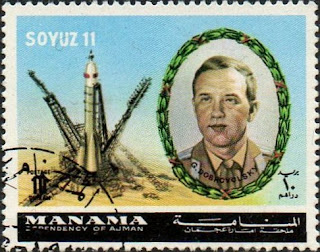The local partner of the New York Times, which reprints the newspaper for a small and discerning audience in the UAE, chose not to print one issue of the paper this week, Monday's, which carried a report on the labour conditions of the men who built the now completed New York University building in Abu Dhabi.
The article is of course available online for anyone who knows what an Internet is.
It's linked here.
Buzzfeed, playing Chinese whispers, makes a number of small but critical errors in its coverage of the incident, claiming this is "...the first time UAE authorities had tried to censor an NYT story."
Except it wasn't any 'authority'. The Khaleej Times reprints the NYT and the decision was clearly theirs. The NYT's own letter to subscribers makes it clear that Khaleej Times "deemed it too sensitive". Not the National Media Council, which would have been the censoring body if authority was to come into play.
The move, a muckle-headed one on KT's part if you don't mind me saying so, does the UAE a disservice. The story needed to be aired locally, the attempt to suppress it was clearly futile and did more damage to the country's reputation than letting the piece run would have caused.
I am increasingly frequently enraged by expats acting the censor. They err on the side of caution, fearful for their precious tax-free jobs and then they make fools of us all. We can't talk about that, best avoid this. The whispered, winked conversations are infuriating. It's the politics of the playground, my dad's bigger than yours. "I'm, let us say, close to those in authority and I don't mind telling you this wouldn't play well," says Sam Cheeseman as he stamps his mark on the commentary which actually doesn't 'cross' any 'line' as we know it.
The National Media Council has read, and passed for publication, two of my three serious Middle East based novels. I subsequently chose to take content out because I thought it unnecessarily offensive - my choice and decision entirely and not based on fear of my position here but purely on my judgement of the fine line between what is necessary to make a story 'play' and be realistic and what would annoy or cause offence to my readers. The 'C' word, for instance, I eventually chose not to use because I know women who find it highly offensive and the story lived on just dandy without it. The NMC left it in, I took it out.
The NMC has not asked me to change a word of my books. Not one word. Ever.
Olives - A Violent Romance contains pre-marital sex between Muslims and Christians, Muslims drinking alcohol and other stuff.
Beirut - An Explosive Thriller goes way further. There's all sorts of stuff in there, from prostitution to heroin, booze and murder. The NMC didn't bat an eyelid.
Writer friends are sore amazed that books have to be read before being 'passed' as fit for publication, but the NMC is on a journey. When I first dropped wide-eyed onto the tarmac at Dubai International back in 1988, the Ministry Of Information ruled and its rule was indeed heavy-handed. The UAE gets very little credit for how very far it has come in such a relatively short time. Don't forget the UK was still banning and censoring things right up into the 1980s, from Lady Chatterley's Lover to Frankie Goes To Hollywood's
Relax.
So you can stop wagging your finger in this direction, matey.
But the core fact in the NYT story and the spate of others like it that really has me wondering is this, undoubtedly set to be most unpopular, thought. If things are so very bad for labour in the UAE, then why - over fifty years after they started building this place - do the workers still come here?
I appreciate conditions are hard, harsh even. But has anyone done a comparative study of labour conditions in, say, Dhaka
compared to here? I'm here because I'm better off than I would be at home. And so's everyone else. That's not a shallow argument or excuse. It's simple, plain fact. Ever since Safa Park was a makeshift shanty town for illegal immigrants (it later shifted to Mamzar), people have flocked to the UAE from the Subcontinent to work. Thousands of them have become millionaires in the UAE - having arrived with nothing.
Does that make it all any better or more admirable? 'Course not. But by living here as expats we condone the practice implicitly, perhaps even complicitly. Labour conditions in the UAE have clearly improved significantly over the years I have been here, but European sensibilities are still offended by the camps and reports of 12 hour workdays, let alone the deaths of men travelling from Umm Al Qawain to Jebel Ali to work.
Then there are the practices of agents and usurious visa salespeople, which have led to the popular phrase 'indentured labour' or, as the NYT weasels, 'resembles indentured servitude'. The gombeen men who prey on the workers are not Emirati, but from the workers' home countries. The, apparently infamous,
kafala system applies to all expats in the UAE, it's simply sponsorship. That's what the word means, that's what the system is. Your employer provides your visa, contracts with you to employ you and is essentially
in loco parentis, whether you're a labourer or a CEO.
Is it abused by companies? Yes. Widely? Yes. Is enough being done to stamp out the abuse of workers? No. Does suppressing media reporting of it help? No. Do constant skewed reports of labour conditions here by callow Western journalists applying selective sampling to make the story more dramatic and create more appealing headlines help the situation?
I'd argue not, actually. There's a lack of balance in the debate and by neglecting the efforts of the enlightened, you empower the entrenched.
















